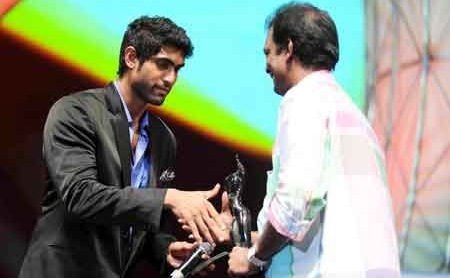 In India, the truth about rampant human rights violations by the security forces in the Occupied Kashmir is catching up with the broader masses. It appears that extreme brutalisation perpetrated by the heavily armed troops against unarmed protestors is too obviously wicked and glaring to be overlooked by the saner section of the Indian society.Noted author and Bookers prize winner Arundhati Roy is one of them, who recently travelled to Srinagar and spoke about India becoming a ‘human cage’. In her speech at a seminar hosted by the Jammu and Kashmir Coalition of Civil Societies (JKCCS), she rejected the Indian claim over Kashmir. “I believe Kashmir is not an integral part of India. It is a historical fact”, she said. She upheld the ongoing ‘intifada’, asking the stone-pelting Kashmiri youth to ‘set goals for Azadi and achieve them systematically’. Not only this, Roy also travelled to Shopian and met the family of Asiya and Neelofar who were raped and murdered on May 30 last year. Prominent human rights activist Gautam Navlakha, who also attended the seminar, was no less forgiving: ‘There has been criminalisation of dissent as all voices in Kashmir have been suppressed’.Interestingly, Arundhati Roy appeared in Srinagar almost simultaneous to the presence of a three-member group of ‘interlocutors’ sent by the Manmohan Singh government, in pursuance of what appears to be some kind of attempt to break the deadlock that has beset Delhi’s moves to bring the rebellious Kashmiris to the negotiations’ table. But once on site and overwhelmed by the reality on ground, the group leader, a renowned journalist, Dileep Padgaonkar, called for involving Pakistan to resolve the Kashmir dispute. And, to some surprise, Chief Minister Omar Abdullah came to the rescue of the interlocutors as the group came under attack by the BJP.
In India, the truth about rampant human rights violations by the security forces in the Occupied Kashmir is catching up with the broader masses. It appears that extreme brutalisation perpetrated by the heavily armed troops against unarmed protestors is too obviously wicked and glaring to be overlooked by the saner section of the Indian society.Noted author and Bookers prize winner Arundhati Roy is one of them, who recently travelled to Srinagar and spoke about India becoming a ‘human cage’. In her speech at a seminar hosted by the Jammu and Kashmir Coalition of Civil Societies (JKCCS), she rejected the Indian claim over Kashmir. “I believe Kashmir is not an integral part of India. It is a historical fact”, she said. She upheld the ongoing ‘intifada’, asking the stone-pelting Kashmiri youth to ‘set goals for Azadi and achieve them systematically’. Not only this, Roy also travelled to Shopian and met the family of Asiya and Neelofar who were raped and murdered on May 30 last year. Prominent human rights activist Gautam Navlakha, who also attended the seminar, was no less forgiving: ‘There has been criminalisation of dissent as all voices in Kashmir have been suppressed’.Interestingly, Arundhati Roy appeared in Srinagar almost simultaneous to the presence of a three-member group of ‘interlocutors’ sent by the Manmohan Singh government, in pursuance of what appears to be some kind of attempt to break the deadlock that has beset Delhi’s moves to bring the rebellious Kashmiris to the negotiations’ table. But once on site and overwhelmed by the reality on ground, the group leader, a renowned journalist, Dileep Padgaonkar, called for involving Pakistan to resolve the Kashmir dispute. And, to some surprise, Chief Minister Omar Abdullah came to the rescue of the interlocutors as the group came under attack by the BJP.
Apparently driven by the force of the ‘intifada’, Omar Abdullah was rather eloquent in support of involving Pakistan, as he cited the Simla Agreement. In his words: “Nothing what the interlocutors had said with regard to Pakistan’s role in Jammu and Kashmir is wrong. After the Simla Agreement whenever talks were held with Pakistan, Kashmir has figured in it”. That’s how the stone-throwing Kashmiri youth’s protests are changing the game.Even sixty years after its forced annexation, for an average Kashmiri, India is an aggressor, to be evicted by force, which keeps varying in terms of tools – now stones are the main weapon in the hands of the third generation Kashmiri freedom fighters. Also, sixty years on, Pakistan remains party to the Kashmir dispute. But that kind of durability is not expected in President Obama’s position on the question of Kashmir. In 2008, as a presidential candidate he was anxious that India should find a solution to the Kashmir dispute.
But no more, as he arrives in New Delhi next month to groom India as a strategic partner in this region to counterweigh China. His administration has conspicuously avoided commenting on the ongoing Kashmiri protests and excessive use of force by Indian troops resulting in large-scale violation of human rights. Not only this; the US officials now talk of the Kashmir movement as India’s internal affair. And, when Pakistan seeks the reason for this U-turn, they advise Islamabad to go back to Musharraf era’s back-channel diplomacy.
Pakistan should also forget about involving the United States in the Kashmir issue. Washington is good only at clinching agreements like Camp David and the Dayton Accord, which in the case of Kashmir would be asking Pakistan to go back to the Manmohan Singh-Pervez Musharraf understanding, so fondly flaunted by the former regime as an ‘out-of-the-box solution’. For us in Pakistan, the best approach is stirring up the United Nations’ resolutions, highlighting excessive abuse of human rights in the Valley as a direct consequence of failure to implement those resolutions. The world is awakening to the tragedy in Kashmir; Arundhati Roy happens to be an early riser – Brecorder











